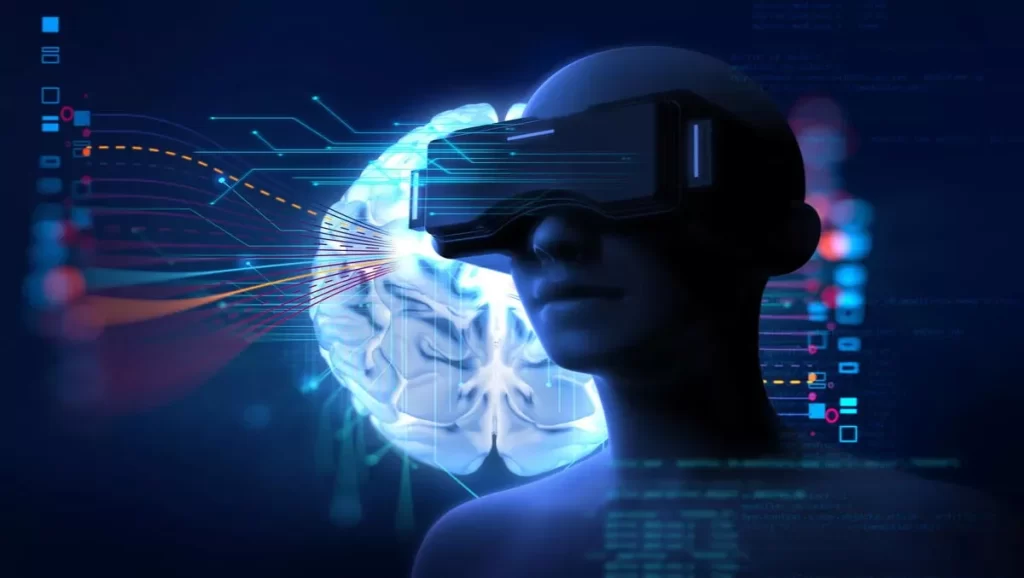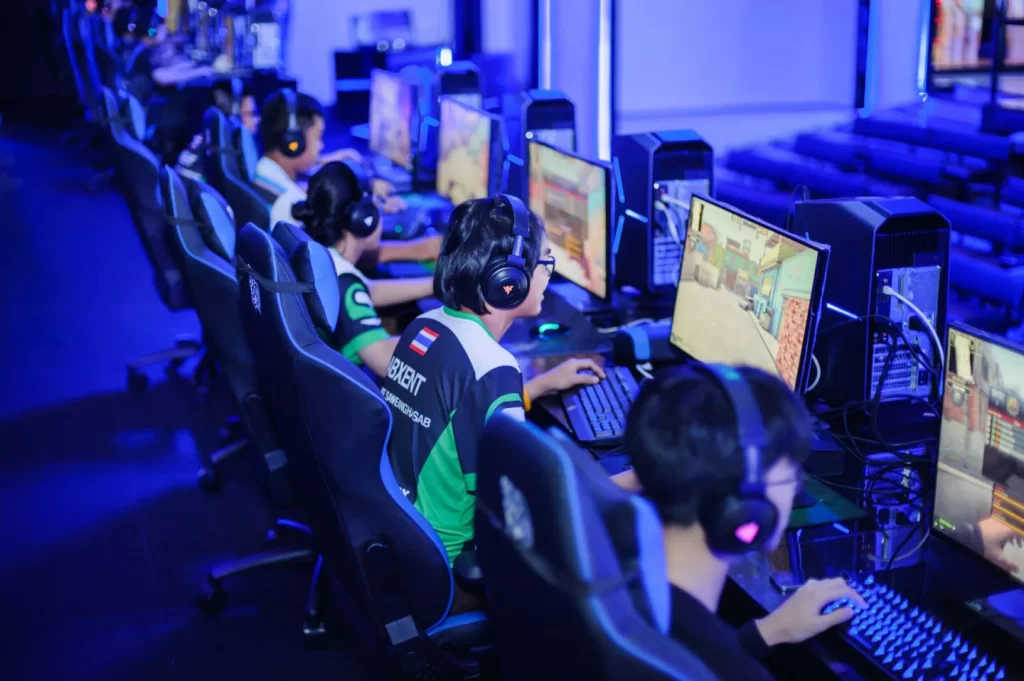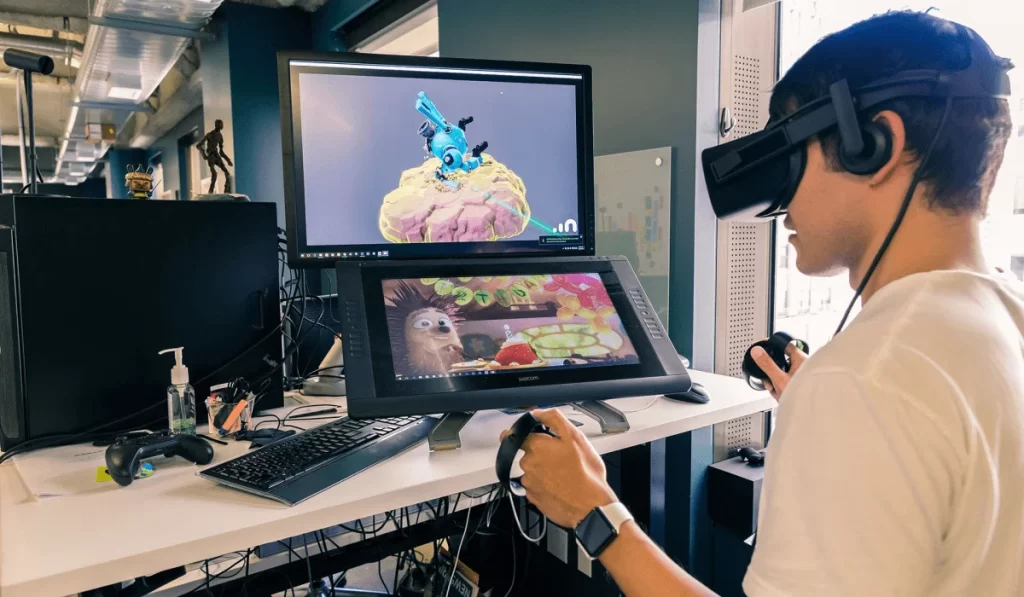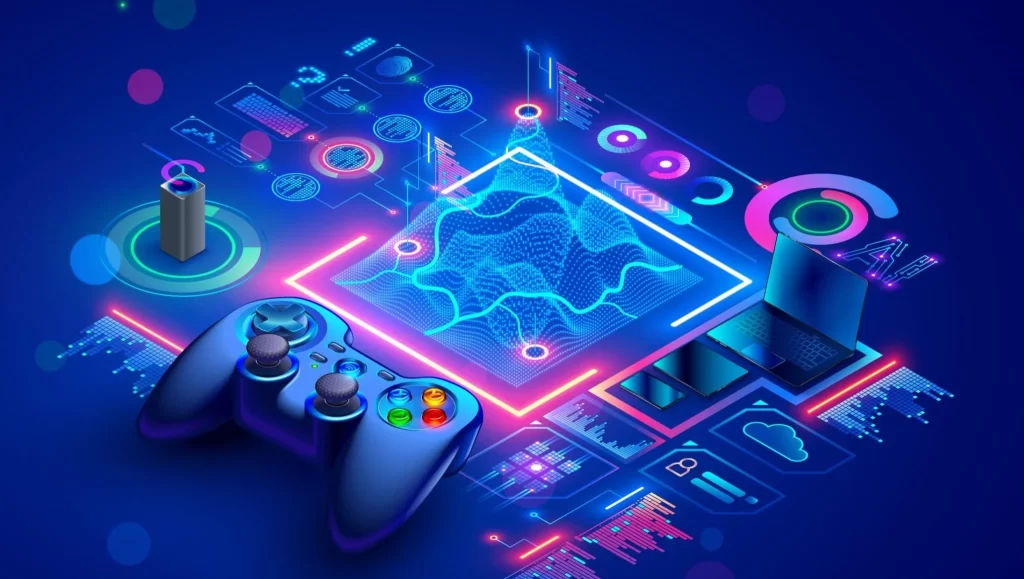AI Gaming: Enhancing Player Experience
Technology enhancements in AI gaming have transformed the panorama, providing gamer extra immersive and engaging stories. One such innovation that has profoundly altered gaming is Artificial Intelligence (AI). AI continues to convert now not only game play but also how game fanatics engage with and experience their favorite video video video games.
Definition of AI Gaming

AI gaming, also referred to as synthetic intelligence gaming, refers to the mixing of AI technologies into video games to beautify numerous factors of game play and player revel in.
Evolution and Rise of AI within the Gaming Industry
The incorporation of AI in gaming has a rich records, courting returned to the early days of gaming.However, present day improvements in system learning and computational power have propelled AI gaming to new heights, enabling builders to create extra sophisticated and realistic virtual worlds.
Impact of AI Gaming on Players
Improved Gaming Experience AI algorithms can observe player behavior and customize the gaming environment accordingly for an engaging experience tailored to each individual’s preferences and skill level.

Personalized Game play
By leveraging AI, recreation developers can create dynamic narratives and game play reviews that regulate in actual-time based at the player’s actions, leading to a more enticing and immersive gaming experience.
Improved Opponent Simulation
AI-powered non-participant characters (Np Cs) can mimic human-like behavior, making in-sport combatants extra hard and realistic, accordingly enhancing the general gaming experience.
AI Gaming Technology

Machine Learning Algorithms
Machine mastering algorithms shape the backbone of AI gaming, enabling computer systems to learn and improve their overall performance over time thru revel in and facts evaluation.
Neural Networks
Neural networks, inspired by the structure of human brains, are used in artificial intelligence gaming to process complex data inputs and make intelligent decisions about character movement and strategy planning.
Natural Language Processing
Natural Language Processing (NLP) generation creates more engaging and immersive gaming stories by means of allowing gamers to communicate with virtual characters the usage of herbal language commands and responses.
Examples of AI Gaming Applications

AI-Powered NPCs
Games such as “Red Dead Redemption 2” and “The Last of Us Part II” feature AI-driven NPCs who exhibit realistic behaviors and emotions to add depth and enhance storytelling experience.
Adaptive Difficulty Levels
AI algorithms can dynamically adapt a game’s issue stage primarily based on each participant’s skillset and performance, creating an attractive yet difficult gaming revel in for all competencies.
Game Recommendation Systems
AI-powered advice systems examine participant choices and behavior to indicate new video video games or content tailor-made to every participant’s interests, improving discoverability and engagement.
Ethical Considerations in AI Gaming

Data Privacy Concerns
The collection and evaluation of participant statistics in AI gaming raise worries about records privateness and safety, prompting obvious records practices and sturdy privateness protections.
Bias in AI Algorithms
The use of AI algorithms in gaming can perpetuate biases present within the underlying records, leading to unfair or discriminatory results for positive organizations of gamers.
Impact on Employment in the Gaming Industry
The automation of recreation development obligations through AI technologies may additionally result in activity displacement for traditional sport builders, highlighting the want for upskilling and reskilling projects.
Future Trends in AI Gaming

Virtual Reality Integration
AI and digital truth (VR) technology promise to provide even extra engaging gaming reviews, blurring the differences between virtual and actual reality worlds.
Emotion Recognition Technology
Thanks to advances in emotion recognition era, games can now stumble on and reply to gamers’ feelings in actual-time, unlocking new opportunities for storytelling and player engagement.
Conclusion
The evolution of AI gaming represents a paradigm shift in how gamer interact with and revel in video video games. By harnessing the strength of AI technology, exercise developers can create greater immersive, personalized, and engaging gaming stories that push the limits of creativity and innovation.


